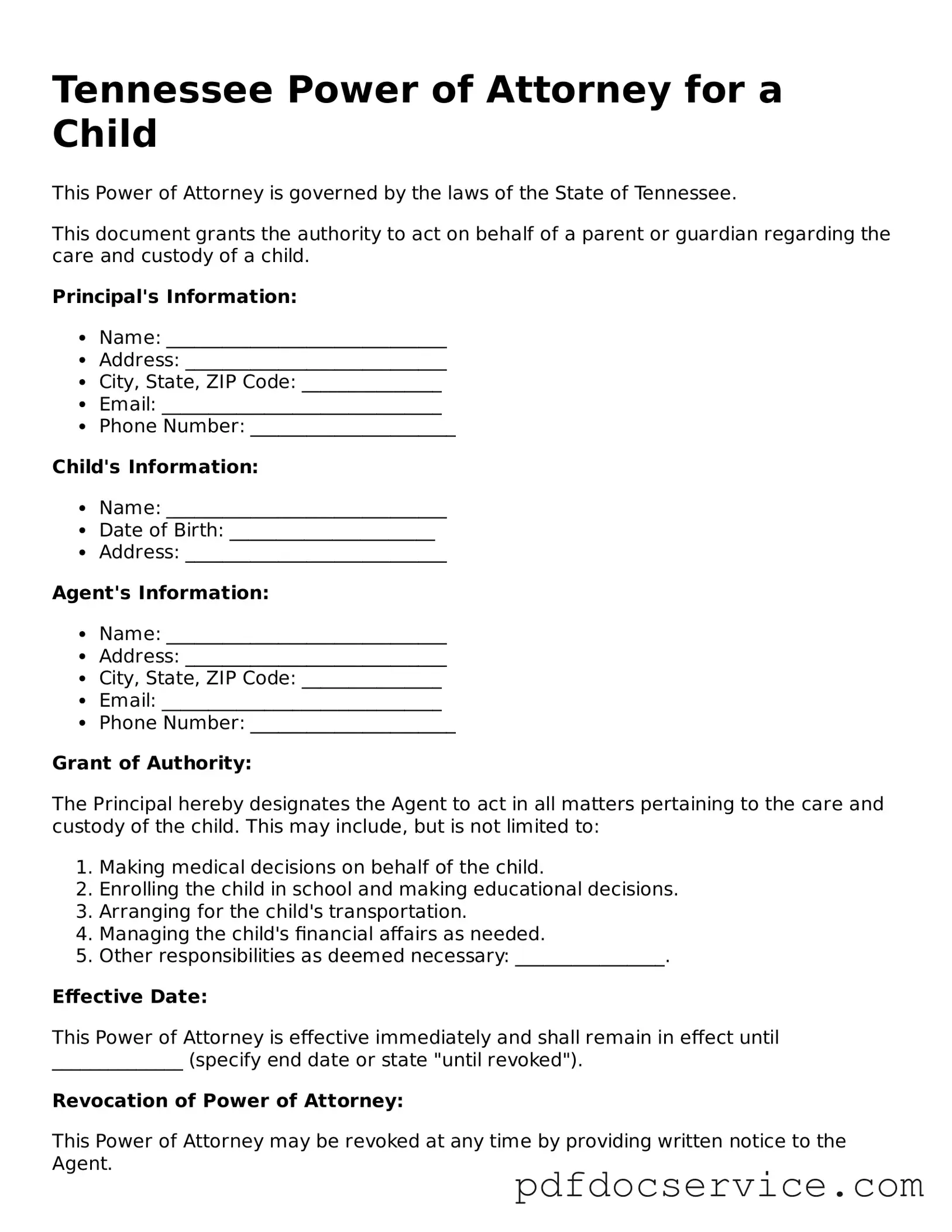What is a Power of Attorney for a Child in Tennessee?
A Power of Attorney for a Child in Tennessee is a legal document that allows a parent or legal guardian to grant authority to another adult to make decisions on behalf of their child. This can include decisions about medical care, education, and general welfare. It is particularly useful when parents are unavailable due to travel, work, or other commitments.
Who can be appointed as an agent?
Any responsible adult can be appointed as an agent. This could be a family member, friend, or trusted neighbor. It’s important to choose someone who understands your values and can act in your child's best interest.
How long does the Power of Attorney last?
The Power of Attorney for a Child can be set for a specific duration or until a certain event occurs, such as the return of the parent. If no end date is specified, it generally remains valid until the parent revokes it or the child reaches adulthood.
Do I need to notarize the Power of Attorney?
Yes, in Tennessee, the Power of Attorney must be signed in front of a notary public. This helps ensure that the document is legally binding and recognized by third parties, such as schools and medical facilities.
Can I revoke the Power of Attorney?
Absolutely. You can revoke the Power of Attorney at any time as long as you are mentally competent. To do this, you should create a written revocation and notify the agent as well as any institutions that were informed of the original Power of Attorney.
What decisions can the agent make?
The agent can make a variety of decisions, including:
-
Medical decisions
-
Educational decisions
-
General care and supervision
However, the exact powers can be specified in the document, so it’s important to clearly outline what the agent can and cannot do.
While there is no official state form mandated, it is advisable to use a well-structured Power of Attorney template that complies with Tennessee laws. This ensures that all necessary information is included and helps avoid any legal issues later on.
What if the child has special needs?
If the child has special needs, it’s crucial to consider their specific requirements when drafting the Power of Attorney. You may want to include additional instructions or limitations to ensure the agent understands how to best support the child’s needs.
Yes, if you are the legal guardian or have been given parental rights through a court order, you can use this form. It’s important to have documentation that supports your authority to act on behalf of the child.
Where can I find help with the Power of Attorney for a Child?
If you have questions or need assistance, consider reaching out to a local attorney who specializes in family law. They can provide guidance tailored to your situation and help ensure that the document is completed correctly.

